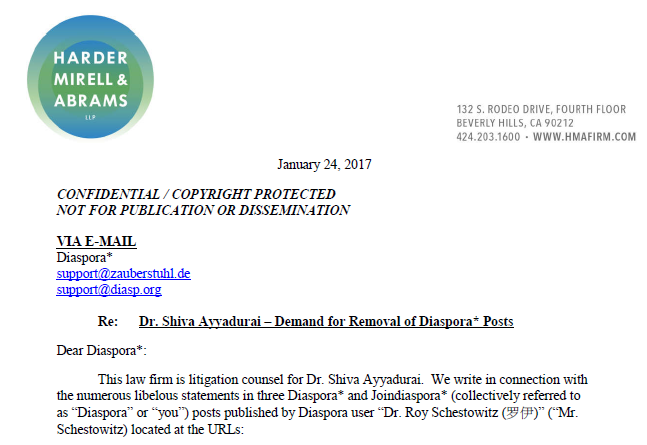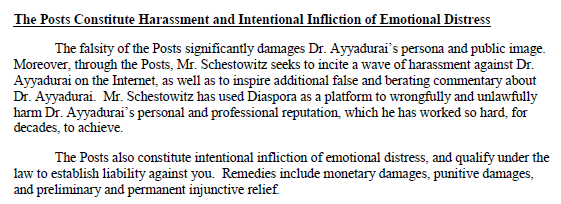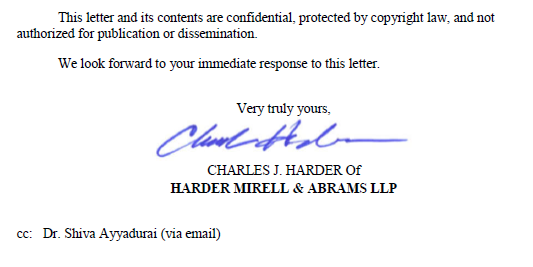Lawyer Behind Failing Sham To Protect Sketchy Patents Sends Bogus Copyright Cease & Desist To Blogger
from the a-bit-sensitive,-michael? dept
You may recall a story we had last fall on a really, really obnoxious and cynical scam to protect sketchy patents by "selling" the patents to Native American tribes. The details here are complex, and that original article has a longer explanation, but the very short version is that in 2010, Congress created a special appeals board to review patents to see whether they never should have been granted. This Patent and Trademark Appeals Board (PTAB) has actually been quite useful in getting rid of sketchy patents, which is why people with sketchy patents hate it, and are trying to get it declared unconstitutional by the Supreme Court.
But, while everyone waits on that some lawyers came up with a fairly devious plan to avoid PTAB review. It started when the PTAB agreed to dismiss some reviews of patents held by the University of Florida, after the University claimed that it had sovereign immunity as a state organization. The lawyers for the University of Florida, from the law firm of Shore Chan DePumpo based in Dallas, apparently sensed an opportunity. Realizing that a state-controlled organization could apparently avoid the entire PTAB process by claiming sovereign immunity, it realized that companies facing challenging PTAB reviews could potentially avoid doing so entirely by "selling" the patents to a "sovereign" organization, which would then license the exclusive rights back to the original patent holder. Effectively, the patent holder would pay a bit of money to some sort of sovereign operation, but would retain all of the rights as before, just structured as an exclusive license.
The big example of this from last fall was the pharmaceutical company Allergan, which seemed likely to lose some of its patents for the drug Restasis under PTAB review. So right before the PTAB was going to rule, the same lawyers engineered a "sale" of the patents to the St. Regis Mohawk Tribe. Allergan would pay the tribe $13.75 million basically for one purpose only: to magically exempt it from the PTAB process. As we noted at the time, this really does appear to be a sham sale for no other purpose than to avoid the PTAB.
The sham not only didn't work, it has backfired spectacularly. In February, the PTAB denied the tribe's motion, clearly recognizing what was going on:
Upon consideration of the record, and for the reasons discussed below, we determine the Tribe has not established that the doctrine of tribal sovereign immunity should be applied to these proceedings. Furthermore, we determine that these proceedings can continue even without the Tribe's participation in view of Allergan's retained ownership interests in the challenged patents. The Tribe's Motion is therefore denied.
Not only that, but the publicity of all of this woke up Congress, which introduced the PACED Act, which is directly designed to stop this kind of activity:
Senator Tom Cotton (R-Arkansas) and Senator Claire McCaskill (D-Missouri) along with Senators Pat Toomey (R-Pennsylvania), Joni Ernst (R-Iowa), David Perdue (R-Georgia) today introduced the Preserving Access to Cost Effective Drugs (PACED) Act, which restores the power of the Patent and Trade Office and federal courts, and the International Trade Commission to review patents regardless of sovereign immunity claims made as part of sham transactions.
In short, this scam hasn't worked out all that well. And it appears that the lead partner at Shore Chan DePumpo, Michael Shore, is a wee bit sensitive about all of this. Roy Schestowitz of the site Techrights.org has been writing about all of the PTAB shenanigans in numerous posts on his site. For example, here's a post he wrote on March 18th, about the anti-PTAB movement. That post, along with earlier posts about the PACED Act included a headshot of Michael Shore, the lawyer mentioned above.
Last week, another lawyer from Shore Chan DePumpo, Shukri Abdi, sent Schestowitz a laughably ridiculous cease and desist letter, claiming that Schestowitz was infringing on Shore's copyright in using a thumbnail of his headshot in those stories.
It has come to our attention that you are responsible for unlawfully publishing Michael Shore's photograph on the website www.techrights.org, as the named registrant and creator of the website, in violation of the United States Copyright Act. 17 U.S.C. § 101 et seq. We demand that you immediately cease such infringing activity, desist from such infringing activity in the future, and comply with the requirements set forth in this letter.
As you are no doubt aware, Mr. Shore has exclusive rights in his photographs, which you have widely reproduced, published, and/or distributed without permission. Your unauthorized reproduction, distribution, publication, and/or transmission of Mr. Shore's photograph on www.techrights.org, including the following webpages, constitutes copyright infringement.
The letter goes on to demand Schestowitz cease and desist from doing anything with the photograph and gives him until the end of this week to respond. In an abundance of caution, Schestowitz has done so. But he shouldn't need to. Abdi, a recent law school grad, specializes in patent and trademark issues, but considering she worked at the Intellectual Property Law Clinic in law school, one would hope that at some point someone taught her about Section 107 of copyright law, regarding exceptions to copyright law, including fair use. That starts out by noting that using works "for purposes such as criticism, comment, [and] news reporting" can be considered fair use, and thus non-infringing.
Indeed, there is a case that is directly on point on this issue, Dhillon v. Does, in which a lawyer named Harmeet Dhillon was upset about a website, called MungerGames, that published an article critical of her that included one of her own headshots that she had posted on the web. In other words, an identical situation to the one here. The court there found it to easily be fair use. And, of course, we won't even get that deeply into the open questions of whether or not Shore actually holds the copyright in this image. Abdi's letter states that Shore "has exclusive rights in his photographs" which is not entirely accurate. It's unclear who took this photo, but it clearly was not Shore. It is possible that there was an assignment of the copyright in the photo to Shore or that it was done under some sort of explicit work-made-for-hire agreement, but nowhere does the letter state that. Indeed, it seems to imply (incorrectly under the law) that Shore has exclusive rights in photos taken of him rather than by him. Notably, nowhere in the letter does Abdi suggest that Shore registered the copyright in the photo, which would be a necessary prerequisite to suing for statutory damages (there simply are no actual damages here anyway).
Of course, it's possible that Abdi knows all this and was just doing what the partners at her firm asked her to do, which was to send a purely bumptious, censorial threat to a blogger for daring to call out the sketchy legal practices of the law firm Shore Chan DePumpo in trying to craft sham patent sales for the sake of avoiding questionable patents getting invalidated by the PTAB. Of course, sending such a threat might just backfire, in the same way that Shore's plan to "sell" (wink, wink) patents to Native American tribes has backfired. Indeed, it might call attention to just how thin-skinned Michael Shore is, and how he's willing to have associates at his firm send out completely ridiculous, legally nonsensical threats in a weak attempt to try to scare off someone who was criticizing him.
And because this very story is about the headshot, and because using headshots is fair use, and because we're discussing it clearly, here is the headshot of Michael Shore:
Filed Under: bullying, cease and desist, censorship, copyright, fair use, michael shore, patents, ptab, roy schestowitz, shukri abdi, slapp, sovereign immunity
Companies: shore chan depumpo





